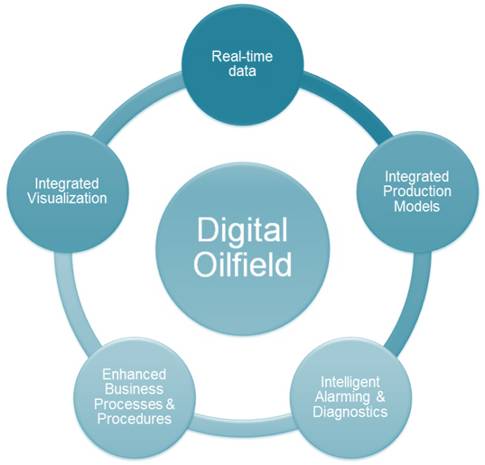By Emmanuel Udeh, Subsurface Data Analyst at Shell
The Oil & Gas industry has, historically, relied heavily on data to make key business decisions. Whether by the use of simple topography maps to infer certain geological assumptions, or the use of production data to predict reservoir performance, data has always been a critical factor underpinning success within the Oil & Gas business. Its importance is growing as each year passes.
It is therefore strange to see the industry currently struggling to properly value its information and data assets and give appropriate recognition to their Information & Data Management departments. Instead, you find many Oil & Gas organizations as yet unable to craft a robust, professional and scalable strategy to leverage data as a critical enabler for competitive advantage, let alone truly attempt to measure its value as an asset.
Because it is physically impossible to perform a proper valuation of the oil and gas below the earth’s surface, the valuation of Oil & Gas assets is heavily dependent on data acquired in the course of exploration and development. This underscores how important data is to the industry and shows why it is critical to properly understand and leverage the vast amount of data constantly acquired throughout the planning, exploration, field development and management phases of the asset lifecycle.
The importance of a digital oilfield

Image courtesy http://www.ipcos.com/
The recent explosion of cutting –edge technology in Information Management & Analytics has made the concept of digital oilfields a very possible one. Massive amounts of data are constantly being acquired, stored and queried using advanced visualization technologies. Oil & Gas companies can now leverage data to gain on-demand insights, enabling them to make critical business decisions at a near real-time rate.
This underscores the point that proper data management will continue to be a competitive differentiator for organizations that understand the business opportunities it presents. They immediately have an advantage over those organizations that cannot make their data assets work for them. The businesses that will enjoy this advantage are those that learn the best way to acquire, store, manage and analyze their data in order to provide a holistic view of critical information to the leadership. These businesses will create value by understanding and managing the uncertainties and risks that are associated with their key assets, thereby aligning their business strategies accordingly.
The crux of the big data-enabled solution for any organization, in any sector of business, is the ability to process diverse data sets. The aim is to gain an understanding of the relational patterns that may exist, enabling quicker and more informed decision-making processes. In the Oil & Gas industry this may be related to field development, reservoir management and asset optimization activities.
Achieving a digital oilfield
A comprehensive Information & Data Management strategy should be implemented that seeks to:
- Set up systems that can handle the sheer volumes of data being generated daily at an exponential rate. Such systems must be able to address inherent challenges such as real-time capture while avoiding data duplication which could result in costly data quality issues.
- Integrate data across multiple systems and assets. This will reduce the growing issue of multiple data “silos”. A major problem experienced by Oil & Gas organizations, silos are created by the organizations’ geographical spread and the generation of multiple data types from various disparate systems and applications under proprietary formats. Data integration will make cross-system data available for easier analysis and faster decision making.
- Create value by enhancing data visualization and analytical capabilities. Recent progress in technology has made data visualization a key enabler for unlocking the value of the data acquired across the business. It also helps turn those sheer volumes of disparate data into information that will enable to the business make faster and more accurate decisions. This improves operational efficiencies and capitalizes on value-adding opportunities as they emerge, generating profit for the enterprise.
How the business understands, measures and manages its data as an asset is undoubtedly a critical success factor for any industry sector. Oil & Gas is no exception, given the scale of investment decisions that are taken on a daily basis.










